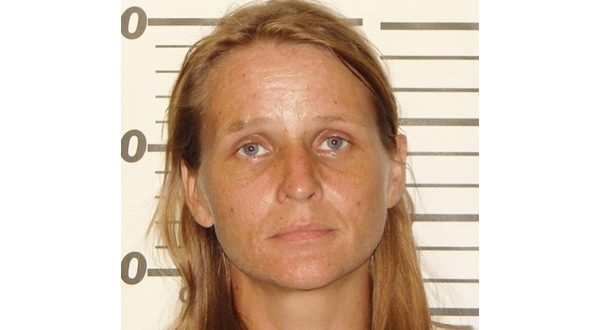
Photo: Rebecca Ruud
The high-profile trial of a Theodosia woman charged with murdering her daughter and disposing of her body in a burn pile in Ozark County in the summer of 2017 has been reset for the eighth time.
The Ozark County Times reports a four-day trial for Rebecca Ruud, charged in the death of her 16-year-old daughter Savannah Leckie, has been reset for May 18-21 in Greene County.
Ruud’s other trial dates have been canceled for various reasons over the past almost four years.
Ruud and her attorneys waived the right to a jury trial in November 2019, setting the stage for the proceedings to be held before Circuit Judge Calvin Holden.
The Ozark County murder case was transferred to Taney County on a change of venue motion, but Holden, who generally presides over cases at the Greene County Courthouse in Springfield, was assigned to the Ruud case. Most hearings have been held in Springfield to accommodate Holden’s schedule.
The latest trial date was set during a virtual hearing late last month before Holden. Ruud’s attorneys had also filed a motion for the judge to let Ruud out of jail on her own recognizance, or to at least set a bond in her case. Ruud has been held without bond since her arrest on Aug. 21, 2017. Holden denied the motion and declined to set a bond.
The court is still awaiting a ruling from the Supreme Court in reference to an alleged privileged recording.
The audio recording reportedly includes what is believed to be a conversation between the Theodosia woman and Missouri Public Defender Nina Lane. Ruud is said to have secretly taped an interview with the investigator sometime between when Leckie was reported missing on July 20, 2017, and the Ozark County woman’s arrest on Aug. 21 that year.
The state became aware of the recording when Ruud’s husband and co-defendant in the murder case, Robert Peat Jr., approached the prosecution for a “proffer of testimony” on Jan. 24, 2020. At that time, Peat was named a “cooperating individual for the state.”
Peat’s attorney, James Hayes of Springfield, accompanied his client to the prosecutor’s office to make the proffer. Ozark County Prosecuting Attorney John Garrabrant was not present in the room when the proffer was made. Instead, the proffer was video and audio recorded.
Ozark County’s former chief deputy sheriff interviewed Peat during the meeting. Peat reportedly told the officer he had recently discovered a digital audio recorder Ruud had given him before the couple “left to go truck driving,” referring to their plans to leave Ozark County to pursue truck-driving careers just before their arrests in 2017.
Peat said the recorder was in a box of miscellaneous items Ruud had given him to “put up.” The box was given to him after he and Ruud were married on Aug. 4, the same day officers reportedly found human remains in a burn pile on the Theodosia woman’s farm. The remains were later determined to be those of a human with a small stature consistent with a teen about Leckie’s age.
Peat reportedly told the officer the box had remained undisturbed until he found it sometime in November or December 2019, two-and-a-half years after Ruud gave it to him.
Peat said he activated the recorder and listened to at least part of a saved recording on the device. The recording appeared to be part of a conversation between Ruud and an attorney or attorney staff member. He said as soon as he discovered the conversation, he contacted his attorney. Peat told officials he had listened to part of the recording, and in it, he said, Ruud reportedly admits to some of the allegations against her.
The prosecution filed a motion asking the court to allow the recording at trial, but Holden denied the motion, saying he believed the recorded conversation was part of a conversation covered by attorney-client privilege.
The state objected to that determination with various points, including arguing Ruud would not have been covered under attorney-client privilege when she recorded the conversation, because she may not have yet been charged in the case.
After Holden denied allowance of the evidence, the state filed a writ with Missouri’s Southern District Court of Appeals. It was denied. Now the prosecution has filed a motion with the Supreme Court asking it to reconsider those decisions.
If the Supreme Court denies the writ, confirming that the recording cannot be used as evidence, the court will then take up the defense’s motion to disqualify the current prosecution, a situation that rests on the argument that Garrabrant and the Missouri Attorney General’s Office heard Peat’s proffer about the audio recording, even though they have not heard the recording itself and do not know exactly what is on the tape.
If the court rules that the prosecution is disqualified from the case, a special prosecution team will be assigned to the case, which Garrabrant says will cost Ozark County a heavy sum.
WebReadyTM Powered by WireReady® NSI










